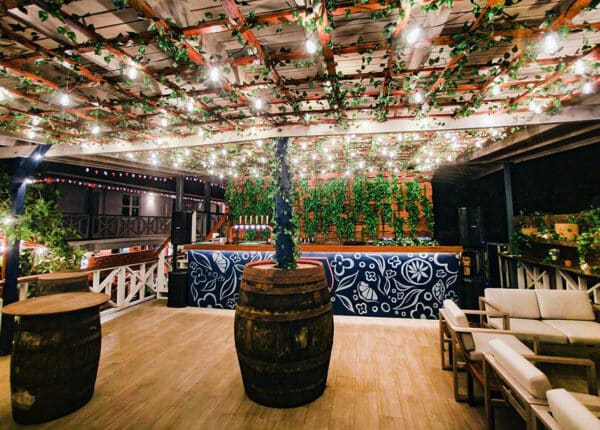Interview with Jamaican MP and Former Foreign Minister Anthony Hylton
Over the summer, Jamaica approved a ban on the sale and trade of scrap metal in the country, with Commerce Minister Dr Christopher Tufton citing a “correlation between increased demand, high metal prices and the rise in metal theft.” An early critic of the decision was Jamaican MP and former Foreign Minister Anthony Hylton, who said that a flat ban would not work for other than a short period of time. Last week, Hylton’s People’s National Party put out a release alleging breaches of the ban in the export of scrap metal from the country, and further alleged agreements to exempt certain producers from the ban. To learn more, CJ Politics talked to Hylton, who is the PNP’s Spokesman on Industry and Commerce, about the ban, the Customs department and the implications of the ban’s alleged contravention.
Talk about the ban, and the decision to enact it in July.
From the beginning, I had my own concerns about the decision itself, but mostly how the decision was taken. I thought that, having regard to difficulty in the industry, and that the industry could have been better regulated than it was, better surveilled. There were things that could have been put in place to eliminate some of the problems. But even so, if the government had its own data that was not shared with the public, I thought that they could have had a better process of consultation. I thought the decision was very unilateral and very quick, and one clear evidence of that was that as soon as the decisions was made, there was a further suggestion to amend it to expand the date because they hadn’t taken sufficient time — people had already been in the process of packing [shipments]. More than that, we knew it would have an impact on a lot of those who pick up scraps, and particularly those who had worked in the dumps for years selling scrap.
What about the exemption for those producing scrap in the ordinary course of business?
The ban prohibited the trade generally, but made one small exception that was for metal generated by industrial production. I knew that would be problematic, because again, without consultation, there were those persons in Jamaica who made it very clear that they were business people who happened to have scrap and were not about to go into the scrap business, and they would have to leave it to professionals, and that, in any event, this was an additional source of revenue. So the whole decision was not satisfactory. It’s a long way to say that I believe that the scrap metal trade, properly regulated, is a source of living for a number of persons, and it is part of the international trade that is global, and the way to do it is to regulate it. I just do not believe that in a world of globalisation, that we should ban things. I think you should regulate them. But more than that, my huge problem was the manner in which it was put in place.
The government disclosed initially that at least eight companies were exporting scrap metal despite a ban on the trade. Can you talk about your findings on that?
There was a list of some 15 entities that were generators of industrial scrap, and a list of exporters. We never did know how that list was put together, who was on that list. Our information was that a number of them were supporters of the Jamaica Labour Party. So there was the whole matter of how this back door facilitation came about. The issue came to my attention when they admitted the breach was technical in nature, because it had very little impact, considering that, as they claimed, the shipments were from industrial sites only, and not domestic scrap. They claimed that because it the industrial scrap [producers] were the ones who shipped the containers, that it was properly supervised by customs. But we have evidence that that is not in the case, that it was pretty much a free-for-all, and was unsupervised by customs and then put out into international trade. That alarms me greatly, because as a former Trade Minister and someone who had worked very hard over the years to have the port situation straightened out, and to prevent contraband, I understood the significance of this backdoor arrangement. So I have persisted in asking questions and trying to figure out what is going on.
The release mentions the reported seizure of two tons of marijuana at the Port of Miami in October found on a ship that stopped in Kingston, with the drugs packed between magnetite, an iron oxide, according to the Miami Herald. What do you believe is the significance of that find?
There were nearly 2 tons of drugs which was a large shipment, and unprecedented. When it was brought to my attention, I recognized that this was within the same time firm as when this [scrap metal] free-for-all occurred, between Sep. 16 and Nov. 27, which was the day I made my first inquiry on what was going on at customs. We know now that is shipped around the 11th of October, and got to Miami the 14th.
Do you believe that scrap metal trade is continuing?
I don’t know. I have no evidence of that — the Minister has reimposed the ban and has tightened its enforcement.
What kind of impact do you think the alleged breaches will have?
I hope it is nothing long-lasting or significant. With proper surveillance and tightening up of the loopholes, I think the system can be made to function. I think mechanisms were in place — and I don’t think it’ s long-lasting. But I think it is a breach that needs to be corrected.
Is it possible that those shipments made during the alleged breach period were orders that were already on their way before the ban was enacted?
Not at all. As I said, when the ban was first instituted, it was announced for Aug. 1. When the date was announced, there was a huge outcry in the industry, and among the arguments were that the time frame was unrealistic, and so it was extended to Sep. 16. So by that date, everybody who had scrap, and everybody who was involved in the trade would have to clean up and pack [the metal] in containers and have shipped them. So the facilitation began after that period, and so that continued.







